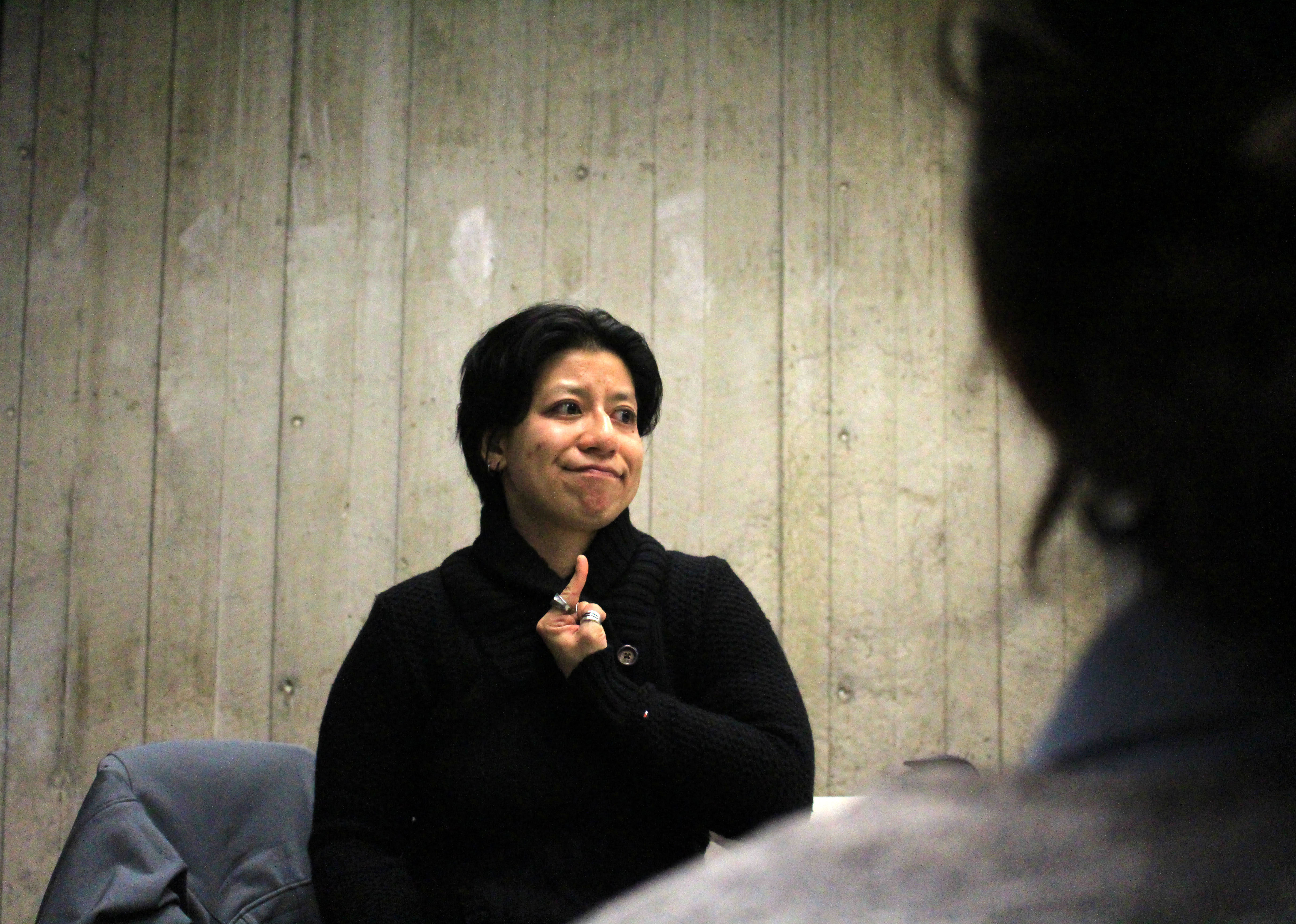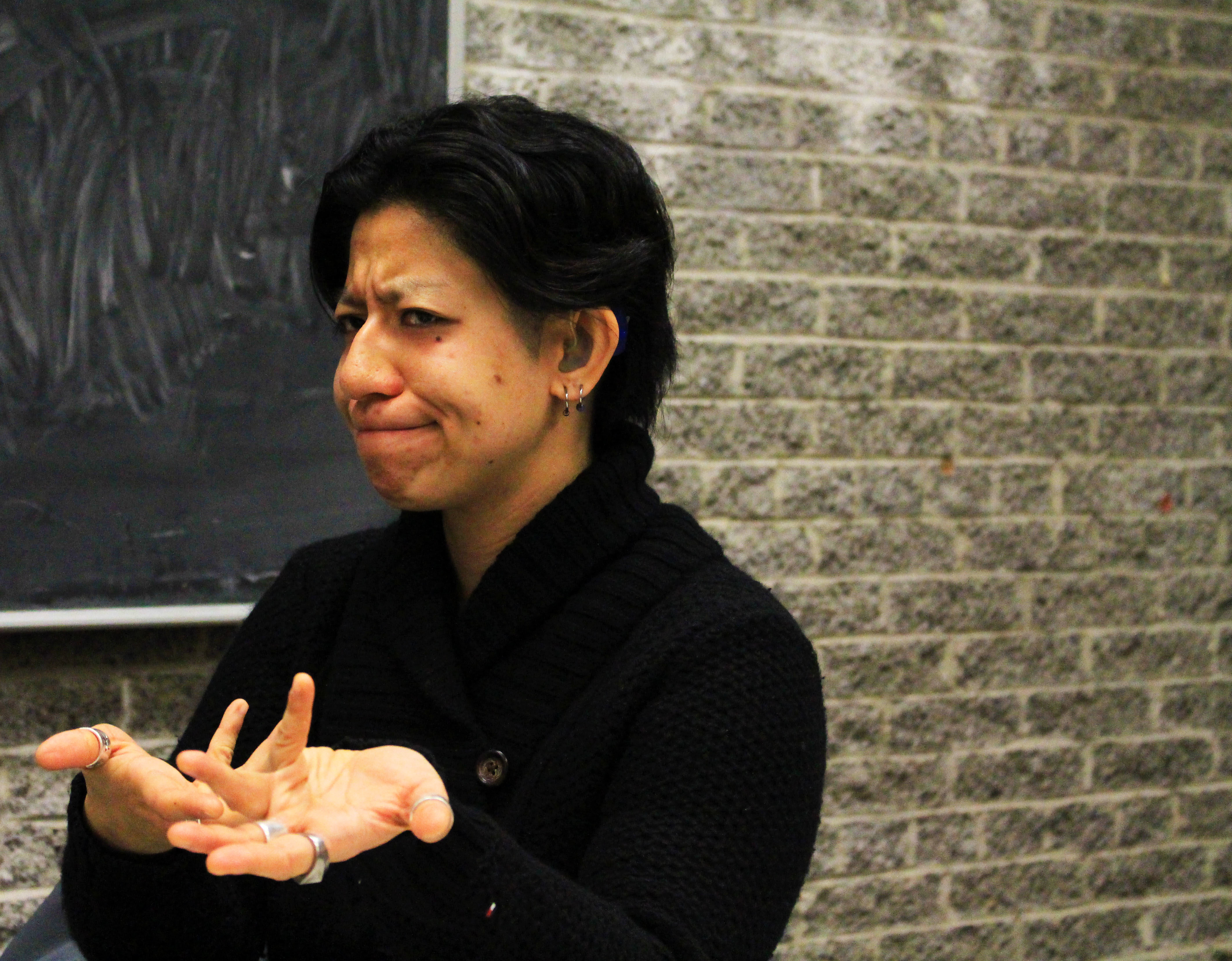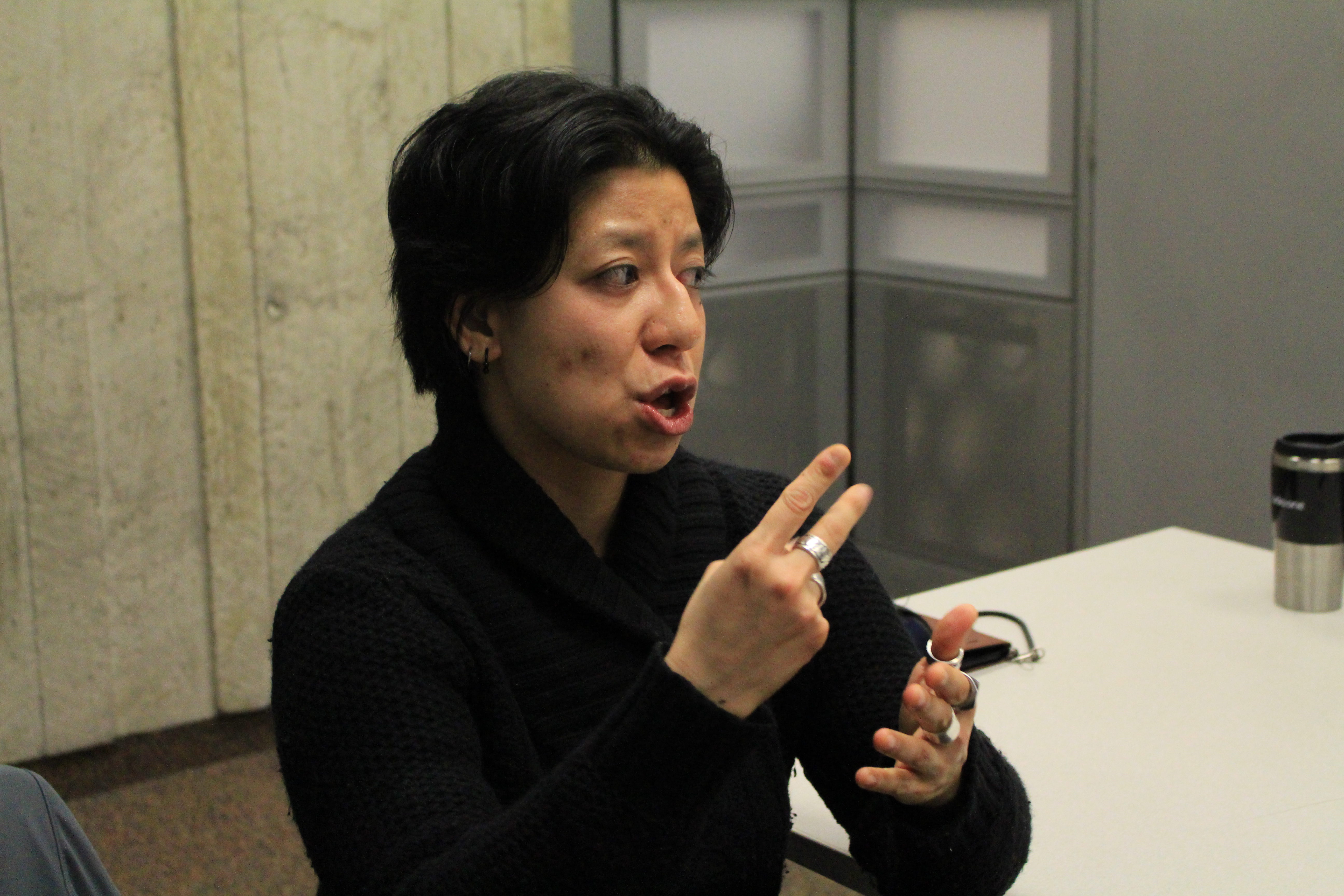 This interview was conducted through an ASL interpreter. Quotes by the interviewee may be subject to errors in translation.
This interview was conducted through an ASL interpreter. Quotes by the interviewee may be subject to errors in translation.
Jenny Leung has been at Ryerson for four years now, and just like the greater part of Ryerson’s students, she has faced her deal of challenges. Except, her challenges are uncommon, as she is the first and only Deaf student in the business technology program.
“I’ve got a good grasp of what Ryerson entails based on a lot of the experiences I’ve gone through. Some bad experiences but also some good experiences,” said Leung.
In being the first, Leung has been a breaker of barriers for students and faculty who are in the dark about how to deal with certain accommodations. She refers to herself as the guinea pig or a token for the program, because she is the only association many faculty and students have to learn about Deaf people and their culture.
“There’s a lot of parallels when it comes to comparing the hearing community and the Deaf community, the only difference is the auditory. I just do not hear.”
But in a way, Leung is also a light in the dark: an opportunity for Ryerson to better understand the needs of more students. Leung is not the first Deaf student at Ryerson, and she found that many students who came before her didn’t have a successful journey, and ended up dropping out of the program, or transferring. So in her eyes, the 32-year-old has been alone throughout this entire process.
“Sometimes I could see other hearing people when they interact with me, they are kind of shocked or awkward. But as a Deaf person obviously I’m not going to bite you, it’s just a matter of I’m looking at you and you’re looking at me,” she says. “We’re both students, we’re normal, we’re on the same level. There’s a lot of parallels when it comes to comparing the hearing community and the Deaf community, the only difference is the auditory. I just do not hear.”
And while the students remained meek, that was not something that Leung allowed from her professors.
“I’m trying to get professors to actually know the protocol and not be a little awkward when dealing with a Deaf student. The past four years have been kind of a challenge doing that. It’s always been a matter of being told you can’t do something, there’s always that kind of rhetoric when it comes to something new,” she said.
There are few other resources that bring awareness to these needs, she expresses. Staff don’t have enough knowledge, and there is not enough training in terms of integrating Deaf students.
“There’s no protocol, there’s no workshop, no training,” she said.
But Leung has learned to be assertive in trying to get her accommodation needs met with professors. For every semester in every class, she introduces herself to professors via email to ensure that they are informed of her needs. She then meets with the professor in person.
“It’s always been a matter of being told you can’t do something, there’s always that kind of rhetoric when it comes to something new.”
“It’s a unique experience for them. So I take baby steps along the way, but I make sure that they’re aware of me,” she said.
Reasonably, her biggest frustration is with not having the right American Sign Language (ASL) interpreters who are skilled enough to get her through classes.
“I remember one time we were taking an astronomy course. I had to take an elective for my program, and I asked for two interpreters for the course. I asked two months prior to the course actually starting for that accommodation,” Leung said.
Leung asked for two interpreters because interpreters that are typically booked for longer than two hours need a break, as it can be both physically and mentally exhausting. After two months, Leung still wasn’t told if she would be provided that accommodation.
“I started getting really frustrated because the course was starting soon, and I’m paying for my education. If I have no interpreters, I can’t partake in the course,” she said.
Her next step was asking the professor for any visual aids in advance of the class, such as PowerPoints. But according to Leung, she received no resources, no assistance and no help.
“So I just go on through the course, when there was no interpreter available. I was obviously close to failing because I had no one to rely on. I really needed an interpreter for this course, someone who is well versed in that kind of content,” she said.
Leung then decided to request any interpreter to try and salvage what she could from what remained of the course. For four months she went back and forth with the astronomy professor. In the end, they were willing to look at her assignments and give her a passing grade.
But it was a grade she was not satisfied with; A grade she would not have received had she obtained interpreters.
“If we’re failing, it’s because the system is failing us,” she said.
From then on, Leung’s choice in courses was dictated by which interpreter is available, and at what skill level.
“In an ideal world, it would be nice to have faculty be able to sign to me. So just as hearing students speak to their hearing instructors, it would be nice to have an instructor speak to me in my native language,” Leung said.
“If we’re failing, it’s because the system is failing us.”
Leung says having more Deaf faculty would aid in acting as a bridge to other faculty to understand the frustrations of students who are Deaf.
“If there was someone that in that role as a kind of Deaf mentor, then we could lean on them for any kind of issue. It would help us voice our expressions. They would get our culture and just interacting with them would help the success of Deaf students,” she said.
To Leung, that barrier would be completely taken down.
Despite having to overcome several obstacles, Leung says she enjoyed a lot of her time at Ryerson.
“I’d like to prove to Ryerson that a Deaf person can actually come here and be a student, and be a successful student at that, and not be looked at as less than.
“You can do anything you put your mind to, so I’m just trying to keep that message strong. I’m trying to show that being Deaf is beautiful…having communication is important key to education between a Deaf student and Ryerson,” said Leung.
Leung is set to graduate in October 17 from the business technology program with a minor in psychology.



